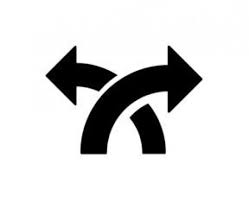|
(2016
premidterm assignment) Model Student Midterm answers 2016 (Index) Essay 1: Compare, contrast, and evaluate Narratives of the Future |
 |
Zach
Thomas
2/20/16
Essay
1: Where is Our Humanity?
When someone thinks of the word,
“apocalypse,” they most likely picture the destruction of humanity. Either war
or some external and drastic climate change are responsible for the end of
everything we hold dear. However, so much fiction is centered around the idea of
post-apocalyptic resilience to the “virus” or a meteor collision with the Earth,
or so have you. Readers are not satisfied with one cosmic event that destroys
life in an instant; they wish for a blade of grass to spring up from the barren
soil. In other words, we desire hope in seemingly impossible scenarios.
For the Revelation given to John, we read of the destruction of the world
by Satan (Dragon) and eventually, God himself. God brings down fire from heaven
to cleanse the Earth for the second time of all sin and the perverseness of
those who do not believe in him. The dragon is first seen by hurtling stars down
at Earth with his mighty tail. But this process was not an end-all situation.
Revelation says that God will use this fire to purify the present world we live
in, in order to create a new heavens and a new Earth. This is a very drastic and
terrifying apocalypse described by John, but it eventually gives way to a very
beautiful picture of the future as the Earth is evolving into what God intended
it to be.
Victoria Webb analyzes the fact that,
“Evolutionary driven narratives assert that while time is always moving forward,
we may change in a way that progresses us, or in way that declines us.” I agree
with this statement because time is neither a foe, nor an ally. Humans accept
change as progress or decline. We also may interpret that through evolutionary
measures are we able to contribute to improvement or de-escalation. For Lauren,
her view of humanity was for progress that was spurred on by a unique belief
system. Much different from her father’s view of “just stay put and don’t do
something risky,” Lauren is pushed out of her home to desire a place that is
later named Acorn, by any means necessary. Survival was not the finish line for
Lauren, just a platform for the future. She meant to thrive with a community
built from her own hands as the result of her efforts.
Literature devoted to a post-apocalyptic world know that humanity must be
tested in order to survive. For many followers of zombie narratives, there are
ways to survive that are derived from an innate sense of being. Lauren and John
of Revelation go beyond survival in their journeys or story-telling. Essentially
these two individuals brought up in our readings are recreating the world in
which we live. God purifies the world of sin and creates anew, while Lauren
escapes various circles of Hell with the hope of establishing a new community
different from the likes of the rest of humanity.
 |
 |
 |
